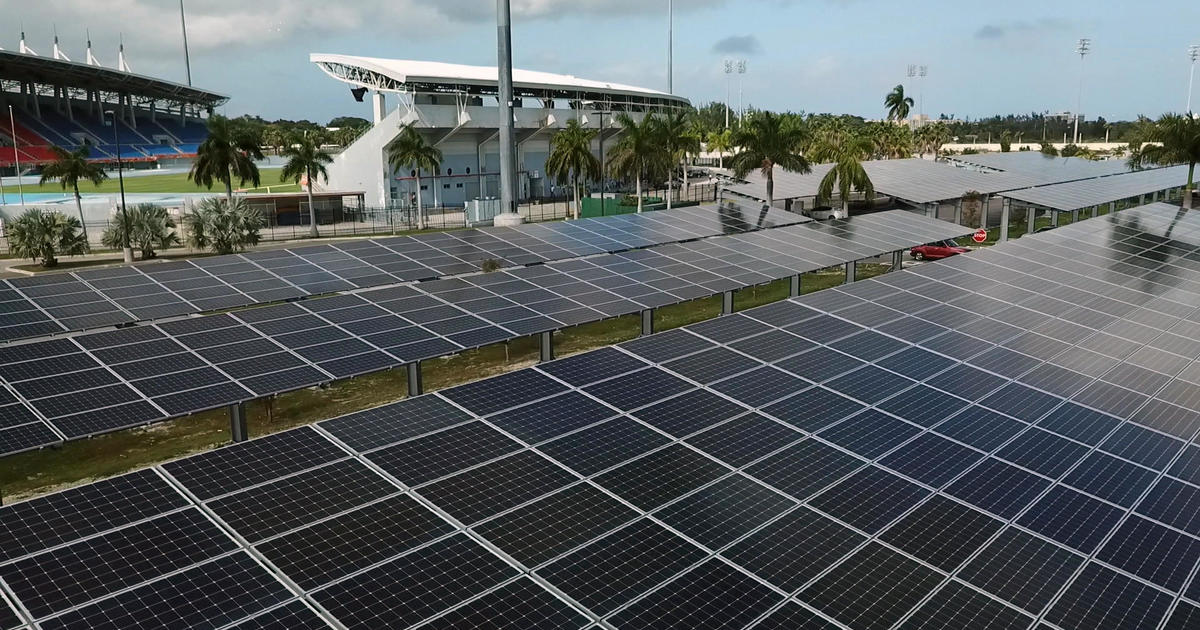SDRick
Active Member
Why would one of the global leaders in solar panels and battery production (China) recently accelerate approvals for coal-fired plants? Depending on where you look, they are building or adding 40 or more.
You can install our site as a web app on your iOS device by utilizing the Add to Home Screen feature in Safari. Please see this thread for more details on this.
Note: This feature may not be available in some browsers.

Exciting, because it's the last coal plant, which means they can stop handling coal.This is exciting for Hawaii!

Tesla Megapacks Will Help Close Door On Hawaii's Final Coal Plant
Hawaii will close its last coal plant as it works to reach 100% clean energy. It will use Tesla Megapacks for one of the world's largest energy storage plants.insideevs.com
Why would one of the global leaders in solar panels and battery production (China) recently accelerate approvals for coal-fired plants? Depending on where you look, they are building or adding 40 or more.
Exciting, because it's the last coal plant, which means they can stop handling coal.
Right now, reducing their petroleum use would be more valuable to the world.
One, because they can sell every solar panel and battery they make to the rest of the world, while their coal supply is increasingly domestic.
Secondly, because last year China cut out imports of coal from Australia and then the cold winter increased energy demand, leading to coal shortages and blackouts. So, in their usual way of late and excessive reaction, they said mine more, generate more.
I guess the world will have to try to figure out whether this will be under-utilized capacity, or actually mean more coal generation, because you can't believe any of the numbers they release.

Same for me. Have generated excess for years now. Added a car and have my local driving covered now. Just turned on the AC early because its hot even here. But its all excess and the sun is shining.The old energy system is designed to keep people wanting. Not the case with renewables.

After Going Solar, I Felt the Bliss of Sudden Abundance
My rooftop panels showed me that a world powered by renewables would be an overflowing horn of plenty, with fast, sporty cars and comfy homes.www.wired.com
Good points and in that light it appears that accelerating coal plant construction approvals the Chinese care more about national security, strength and dominance than climate change and environmental concerns. Otherwise, why not keep more of their solar and battery production for domestic consumption especially since capitalist profits and corporate greed are not corrupting their policies?
It is true China cut out coal imports from Australia so one would think that would lead to increased domestic coal mining, but why increase coal-fired plant construction?
To your third point, just a wild guess but it could be something as simple as the more they ramp up coal-fired plant production the easier it will be and the better they look when they eventually boast about leading the world with the largest percentage decreases in their dependence on coal?
This is great as coal and oil has to be shipped into Hawaii and is very expensive. Was on San Juan island in WA state and there were a ton of Leaf’s. Like you say range not a problem. Was in my MY at a hike parking lot and there were more EVs than ICE -first time have seen that!With gas prices there, pretty sure lots of people are getting EVs. Being an island, range anxiety is probably non-existent.

V2G is key, to bad Tesla is not in front of it (but I think I understand why).
Storm-ravaged Bahamas rebuilding its power grid with emphasis on solar energy
A tiny country in "Hurricane Alley" is trying to be an example to the world after Category 5 storms demolished parts of its electrical grid. Bill Whitaker reports on the Bahamas' adoption of solar energy.www.cbsnews.com
Need more renewables and EVs with V2G.
But they are. Jeff Dahn works for Tesla and has already figured out the chemistry for this. I think it's the long term game play for the company.V2G is key, to bad Tesla is not in front of it (but I think I understand why).
:watermark(cdn.texastribune.org/media/watermarks/2022.png,-0,30,0):focal(0x498:3000x2000)/static.texastribune.org/media/files/67e0ee35b8524946a02ceea87242f859/Hale%20Wind%20Farm%20TrT%20TT%2007.jpg)
Fully Charged Podcast had him as a guest recently.My Modern Met: Switching to 100% Renewable Energy Will Immediately Drop Prices.
Study Finds World Can Switch to 100% Renewable Energy and Earn Back Its Investment in Just 6 Years
With energy and fuel costs at an all-time high, the world is seeking cost-effective solutions for moving away from oil and gas for energy needs. Luckily, a new study by Stanford University says that it might not be as difficult as we think to move toward renewable energy sources. After examining 145 countries, the researchers have stated that switching to clean energy and electrifying all energy sectors won't lead to blackouts or an increase in prices. In fact, according to the study, prices would immediately drop, and all of the up front costs for switching to 100% renewable energy would be paid back in just six years.
One of the main reasons for this is that the combustion-based energy systems most countries use require quite a lot of energy just to function. In switching to a clean, renewable energy system, Professor Jacobson states that worldwide energy usage would go down by 56% immediately. The savings is due to the efficiency of clean energy over combustion systems, as well as the efficiency of electrified industry, as there would no longer be a need to spend energy obtaining fossil fuels.
And the good news doesn't end there. A clean, renewable energy system reduces the cost per energy unit by an average of 12%, which results in a 63% lower annual energy cost. Of course, there are also many health benefits to a clean energy system that would cut down on pollution.

My Modern Met: Switching to 100% Renewable Energy Will Immediately Drop Prices.
Study Finds World Can Switch to 100% Renewable Energy and Earn Back Its Investment in Just 6 Years
With energy and fuel costs at an all-time high, the world is seeking cost-effective solutions for moving away from oil and gas for energy needs. Luckily, a new study by Stanford University says that it might not be as difficult as we think to move toward renewable energy sources. After examining 145 countries, the researchers have stated that switching to clean energy and electrifying all energy sectors won't lead to blackouts or an increase in prices. In fact, according to the study, prices would immediately drop, and all of the up front costs for switching to 100% renewable energy would be paid back in just six years.
One of the main reasons for this is that the combustion-based energy systems most countries use require quite a lot of energy just to function. In switching to a clean, renewable energy system, Professor Jacobson states that worldwide energy usage would go down by 56% immediately. The savings is due to the efficiency of clean energy over combustion systems, as well as the efficiency of electrified industry, as there would no longer be a need to spend energy obtaining fossil fuels.
And the good news doesn't end there. A clean, renewable energy system reduces the cost per energy unit by an average of 12%, which results in a 63% lower annual energy cost. Of course, there are also many health benefits to a clean energy system that would cut down on pollution.
Great interview covers a lot of topics.Fully Charged Podcast had him as a guest recently.

Podcast 167 - The Climate Crisis with Mark Z Jacobson - Fully Charged Show
Robert Llewellyn discusses the Climate Crisis with The Climate Crisis with Mark Z. Jacobson, author of 100% Clean, Renewable Energy and Storage for Everything.fullycharged.show


